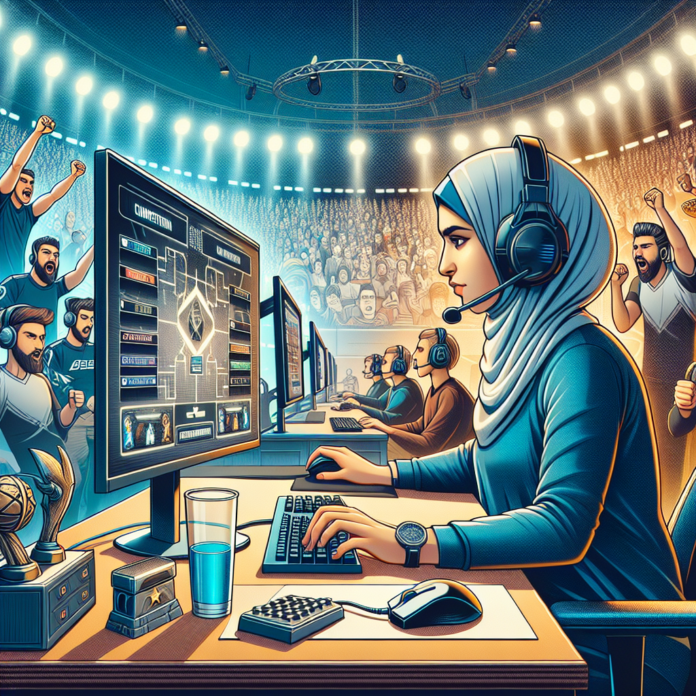Introduction:
eSports, the competitive world of video gaming, has experienced tremendous growth in recent years. What was once considered a niche hobby has transformed into a global phenomenon, attracting millions of viewers and generating billions of dollars in revenue. In this article, we will delve into the competitive eSports industry, exploring its current landscape, key players, and future prospects.
- ESL (Electronic Sports League):
ESL is one of the biggest and most renowned eSports organizations in the world. Established in 2000, ESL has been instrumental in organizing and hosting competitive gaming tournaments globally. They are responsible for major eSports leagues, such as the Intel Extreme Masters and ESL Pro League, which showcase top-tier professional players competing in games like Counter-Strike: Global Offensive and Dota 2. ESL’s dedication to professionalism and high-quality production has significantly contributed to the growth and legitimacy of eSports.
External Links:
- ESL: Visit ESL’s website to explore their various eSports tournaments, leagues, and learn more about their role in shaping the competitive gaming landscape.
- Team Liquid:
Team Liquid is a prominent eSports organization that has achieved incredible success across multiple games, including Dota 2, League of Legends, and Counter-Strike: Global Offensive. With a roster of talented players and a strong focus on player development and support, Team Liquid has consistently been a dominant force in the eSports scene. They have secured numerous championship titles and boast a large and dedicated fan base.
External Links:
- Team Liquid: Discover more about Team Liquid on their website, including their professional teams, recent achievements, and updates from the eSports world.
- Riot Games:
Riot Games is responsible for one of the most popular eSports titles, League of Legends. The company’s commitment to nurturing a competitive ecosystem led to the establishment of the League of Legends Championship Series (LCS) and the annual World Championships, which attract millions of viewers from around the world. Riot Games’ investment in professional teams, production value, and franchise leagues has propelled League of Legends to the forefront of competitive eSports.
External Links:
- Riot Games: Get insights into Riot Games’ influence on the eSports industry, their commitment to developing League of Legends as an eSports giant, and upcoming events.
- Twitch:
Twitch, a livestreaming platform dedicated to gaming, has become an integral part of the eSports industry. It allows fans to watch their favorite professional players and teams compete in real-time while providing an interactive chat feature for engagement. Twitch’s popularity has skyrocketed, and the platform has become the go-to destination for eSports fans to watch live tournaments, discover new games, and connect with the gaming community.
External Links:
- Twitch: Explore Twitch’s website to experience the thrill of live eSports events and discover the vast range of gaming content available.
Conclusion:
The competitive eSports industry has transformed video gaming into a professional sports arena, captivating millions of fans worldwide. Organizations like ESL, Team Liquid, Riot Games, and platforms like Twitch have played pivotal roles in shaping this rapidly growing industry. With ever-increasing viewership, substantial prize pools, and strategic partnerships, eSports is on a trajectory to become a mainstream form of entertainment, evolving beyond the boundaries of traditional sports. The future of competitive gaming holds immense potential, offering exciting opportunities for players, teams, content creators, and businesses alike.




 AGF-B.CO
AGF-B.CO